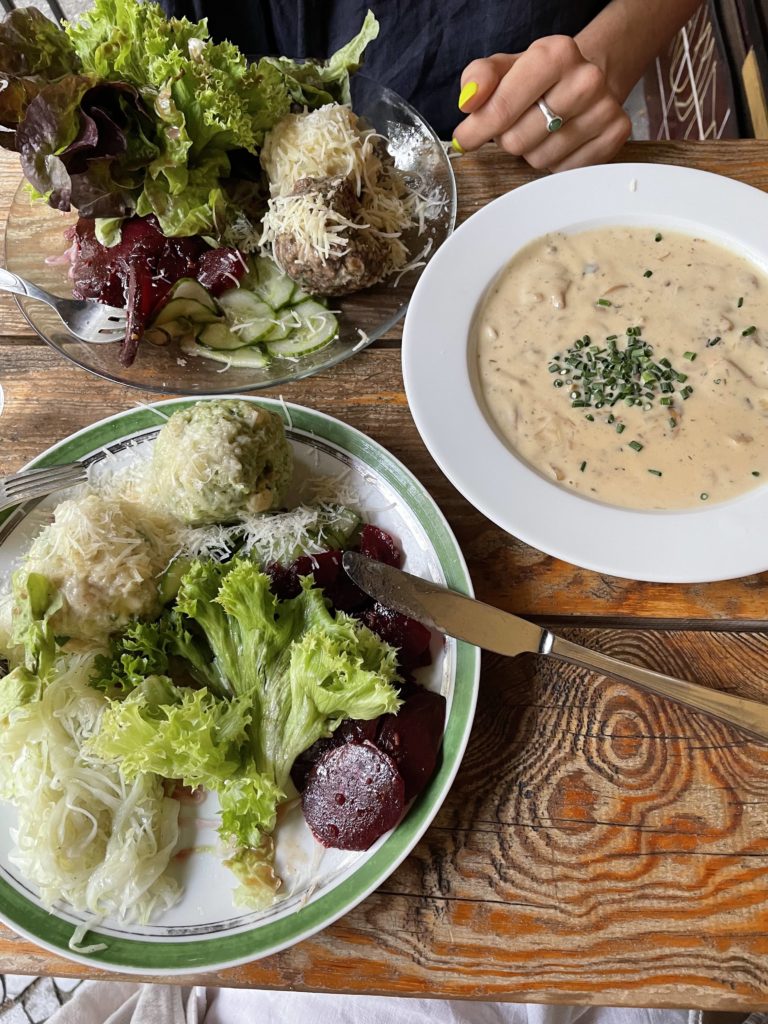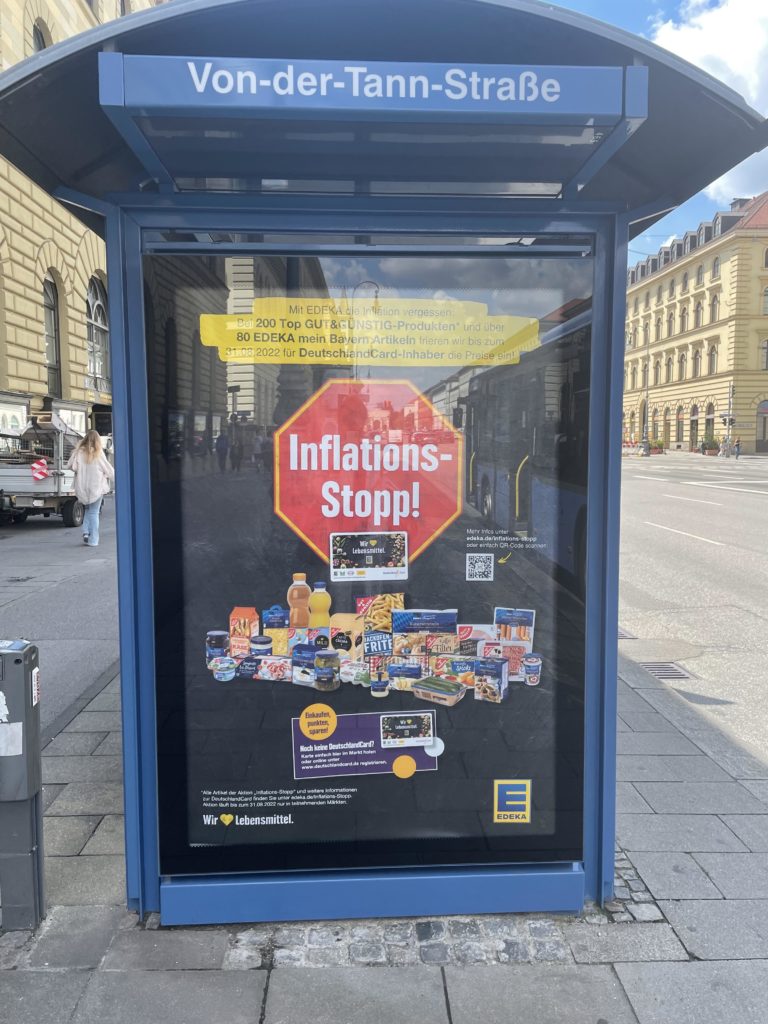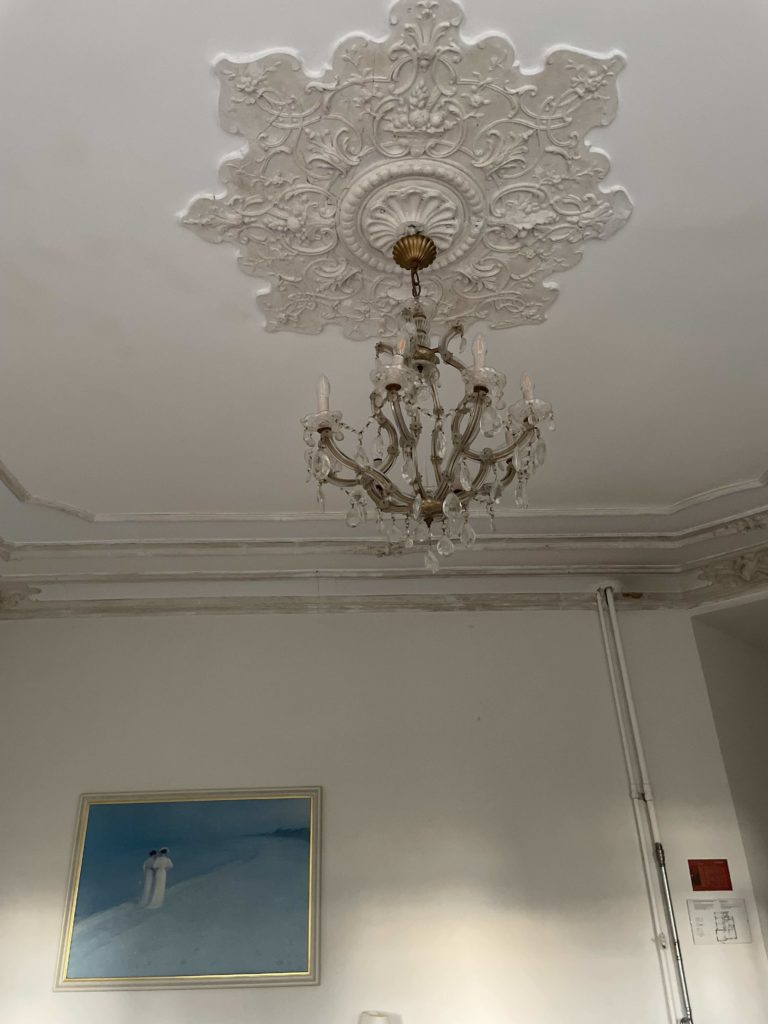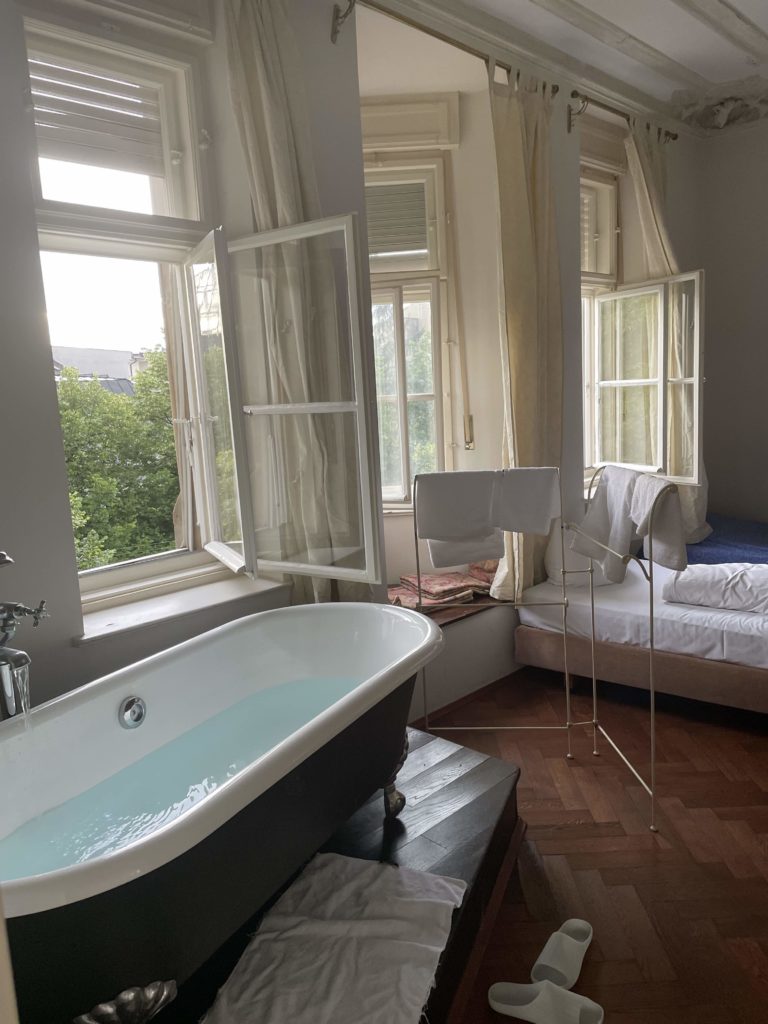In recent conversation with some German friends, I was told that most “German” food is not actually specific to Germany itself, but rather imported from its surrounding countries or regions. The steam sauna, routine to many Berliners as a health practice, has its technical roots in Sweden and Turkey. Schnitzel, too, commonly perceived by US-Americans as a stoutly German tradition, is rerouted to Austria as its origin point. I wonder whether this particular humility continues as a negation of nationalism in modern Germany — and I’m curious what that means for the German identity — being more of an amalgamate of European states than a unified and distinct culture of its own.
Yet there are also small dishes that seem to be regionally specific to Germany’s states. Take Knödel, a kind of dumpling made of potatoes, stale bread, and a certain filling. The word itself denotes knoten, “to knot” or “to knead.” The little dough knots involve an economy of ingredients easily sourced from the standard household, are equally as easy to make, and are a filling meal — they can be added to soups and sauces, too, to bulk things up. I’ve been informed that this dish emerged as a quick fix for poorer households during difficult periods.
My partner and I visited a small Knödelwirtschaft in Berlin to try them. The restaurant had only a few things listed on the menu — five types of Knödels, served with three types of salads (beets, pickled cucumbers, and greens), and some traditional soups and appetizers. The restaurant was quite small, and we ate outside at a small bench and table. The knödels themselves were delicious — we ordered the mushroom sauce to go with and two alcohol-free beers — and rather humble as a dish. The most interesting of the four types we ordered was the Liebstöckelknödel, made from the bitter green herb similar to parsley, lovage. In Germany, I’ve always appreciated the frequency and availability of herbs — they may not have the bounty of fresh produce or citrus as in California, but the herbs are everywhere, and used often. The dill here, for instance, is fabulous.



